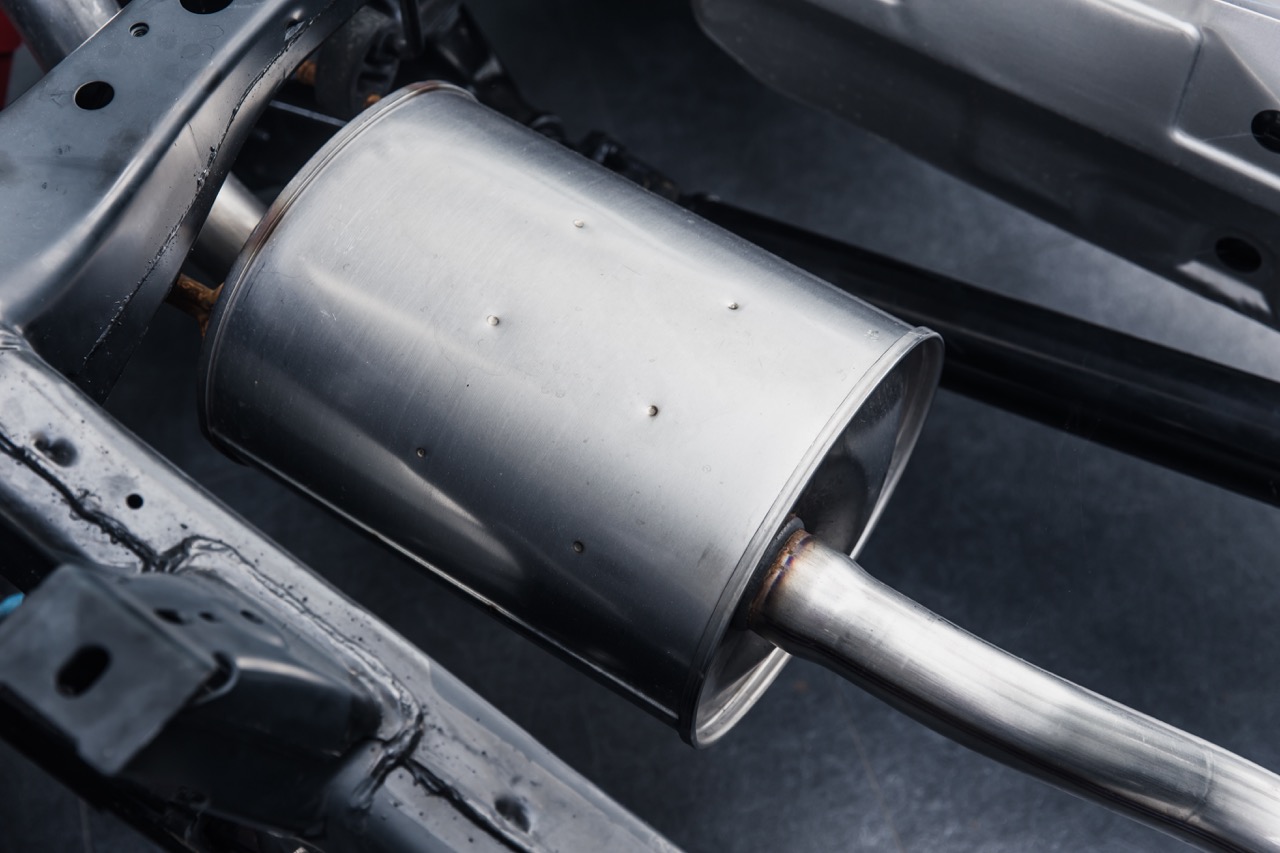
At Master Muffler Ogden we may be biased, but we think a muffler is a pretty important component for any vehicle. Not only do they dampen noise, but they are a valuable part of your car’s overall exhaust system. Let’s take a look at why your car needs a muffler, and what you should do if you’re experiencing any problems with one.
Why Your Car Needs a Muffler
Cars need mufflers thanks in part to the Environmental Protection Agency. To reduce excessive pollution, the EPA proposed the Clean Air Act of 1970 as federal law. Both stationary and mobile sources of air pollution are regulated by the Clean Air Act. This means businesses and vehicles must adhere to strict guidelines to reduce the number of hazardous emissions they release into the atmosphere.
The chemistry performed by any vehicle is necessary for it to function. Air and fuel make your vehicle go, but they also produce pollutants. Your vehicle’s muffler is made of aluminum-coated steel to protect it from both the heat and chemicals that pass through the exhaust system. While the muffler doesn’t directly do anything to reduce pollutants, the gases emitted during exhaust still travel through this series of pipes and chambers under your vehicle.
If your muffler is missing or broken, you’ll not only hear the problem, but you could be releasing toxic emissions into your vehicle’s cabin and the atmosphere around you.
How a Muffler Works
The vibrations created by fumes moving through your vehicle’s exhaust valve are extremely loud. High and low air pressure is regulated through destructive interference in the muffler. Essentially, high and low sound waves in the exhaust system are canceled out thanks to the design of the muffler.
Parts of a Muffler
A central pipe leads into and out of the muffler, and there are three significant components inside.
Perforated Pipes
The perforated pipes inside the muffler direct sound waves through the muffler toward the exit pipe. Sound waves move through the perforations into the central chamber of the muffler.
Central Chamber
Before sound waves are completely deadened in the resonance chamber, they enter the central chamber. Here some sound waves are absorbed by the walls of the chamber before they move through another pipe.
Resonance Chamber
Once the sound waves enter the resonance chamber from the central chamber, they bounce around and cancel each other out. Any remaining sound waves that make it to this part of the muffler are impacted by the volume of air already contained within.
Signs Your Muffler is Bad
Even a novice driver can figure out if a muffler is bad or has fallen off. A vehicle without a muffler is extremely loud and you can’t miss it.
Other signs your muffler needs to be repaired or replaced:
- Decreased fuel efficiency
- Foul odors when the car is running
It’s important to heed these warning signs since a problem with any part of the exhaust system can be hazardous to your health and the environment. Also, a car without a fully functioning exhaust system won’t pass emissions testing so you won’t be able to register your car when the time comes.
Repairing Your Muffler
Holes, cracks, or disconnected pipes in your muffler need to be addressed immediately. Ignoring these problems means potentially harmful fumes are being emitted not only into the air but into your passenger cabin as well.
Some minor damage to a muffler can be mended by welding or the application of muffler sealant. If the problem continues to occur, however, replacing the piece may be your best bet.
The experts at Master Muffler Ogden can help you determine whether you need to patch parts of your muffler, invest in replacement parts, or purchase a new one altogether.
If you’re not sure how much you need to have done to get your exhaust system back in working order, bring your vehicle into Master Muffler. You can contact us online, or give our Ogden car repair shop a call at (801) 938-8037
Related Posts
Key Takeaways On average, passenger vehicle tires last 40,000 to 60,000 miles, depending on type, driving habits, and maintenance. Replace tires when tread depth reaches 2/32”, if damaged, or older than 10 years. Regular rotation, alignment, and proper inflation extend tire life. Aggressive driving, poor roads, and harsh weather shorten tire lifespan. Take advantage [...]
When you think about car maintenance, you probably focus on oil changes, tire rotations, and maybe even brake pad replacement. But what about your brake fluid? If you’ve ever wondered, “What does brake fluid do?” or “Why is brake fluid important?”, you’re not alone. Brake fluid might not be the most talked-about part of [...]
Is that high-pitched squeal from your brakes driving you—and everyone else—crazy? Don’t ignore it. Squeaky brakes aren’t just annoying, they’re your car’s way of saying something needs attention. Whether you're cruising through Salt Lake City or winding up Idaho’s mountain passes, here’s what’s likely going on, how you can fix it, and when it [...]





